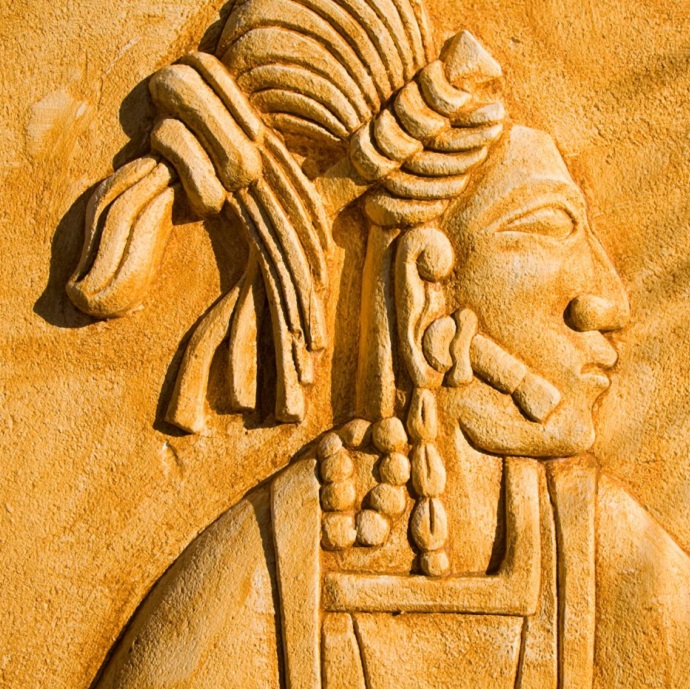

The Honors College
Guthrie House
1200 Ivinson St.
Laramie, WY 82070
Phone: 307-766-4110
Fax: 307-766-4298
Email: honors@uwyo.edu
Meeting times, locations, CRNs, specific section numbers, are all listed in WyoRecords under the “Look Up Classes” search function.
Pre-Requisites: All Honors Upper-Division Classes (3000 and 4000 level) require students to have completed their COM 1 and COM 2 requirements.
Main campus Honors College fall courses will open to non-Honors College after the early enrollment period. Non-Honors College students wishing to register for these courses need to have at least a 3.25 cumulative UW GPA and will need to request an override from the Honors College. Students should email Li Teng to make this request. Online Honors classes are open to all students.
*Please note that Honors College FYS courses are open to all UW students with no override necessary.
Please reach out to the Honors Advising Team for more information and guidance when registering.
Traditional – This means that the class is scheduled to be in-person and students will meet face-to-face.
Asynchronous Online – This means that the course will be completely online, without any scheduled meeting dates or times.
Synchronous Online – This means that the course will be completely online, but there will be a synchronous requirement, meaning students will have specific day/times scheduled for Zoom sessions.
HP 3151: Maya Culture and Art
Instructor: Mary Katherine Scott
Modality: Asynchronous Online
Honors College Attributes: Honors Non-Western. Note: Students who have already completed their Honors Non-Western requirement may
use this course as an Honors upper-division elective
USP attributes: none
A&S attributes: G (Global)
Maya Art & Culture explores the confluence of ancient and modern Maya culture through its people, art, archaeology, and cultural traditions. With guidance from targeted readings, content presentations, and reflective and interactive assignments, this course is designed to give students a deep understanding of Maya culture through time. Students will investigate the rich art and architectural traditions of the region, the cultural elements that define the Maya worldview of yesterday and today, and how the pre-Columbian Maya past is simultaneously present and absent in contemporary Maya life. Finally, by studying primary sources from ethnographic data, students will gain insight into the complex processes involved in cultural continuity and change in response to both internal and external pressures.

HP 3152: Innovate Wyoming
Instructors: Christopher Rothfuss and Penelope Shihab
Modality: Hybrid modality with in-person excursions in the state of Wyoming
Honors College attributes: Upper-division Elective
USP attributes: none
A&S attributes: none
This course is FREE to students.
With a primary focus on the development of new ventures, this course is designed to introduce students to the processes, possible rewards, and pitfalls common to new venture initiation. Ultimately, the idea is to present and study – through a combination of lectures, discussions, readings, case studies and site visits – the demands, trials, and triumphs of today’s entrepreneurs. This course will examine entrepreneurship by progressing through three phases. Phase 1 examines the evolving concept of entrepreneurship, the entrepreneurial perspective in both individuals and organizations, and the challenges of ethics, social responsibility, and social value creation in the current global environment. Phase 2 focuses on the initiation of entrepreneurial ventures. We will address issues such as the importance of creativity and innovation, assessing entrepreneurial opportunities, and the capital prospects for new ventures. Finally, Phase 3 narrows even further, considering the elements for effective entrepreneurial business plans and the legal, fiscal, and marketing challenges associated with launching a new business/organization. Check out more about this innovative course at Innovate Wyoming.

HP 3152: Mass Media and Collective Consciousness
Instructor: Adrian Molina
Modality: Asynchronous Online
Honors College Attributes: Upper-division elective
USP attributes: (H) Human Culture
A&S attributes: none
This course explores the most central and critical issues of our times: Humanity, Technology, and Sustainability. In this course, the student is the main "Text," meaning that each student will engage in contemplative education practices. Students will examine their own lives in relationship to technology, mass media, social media, and how the cyborg-ification of our lives affects our physical, mental, and emotional health, as well as our relationships with other humans.
Additionally, this is a topics course that may explore any of the following: the development of collective consciousness; historical uses of propaganda; functions of mass media; the functions of corporate media vs independent media; how mass media affects public opinion; journalism and ethical considerations; pop culture's relationship to American values and standards; the nature of news coverage and news filters; access to media and social justice concerns; functions of art and entertainment; critiques of mass media and pop culture; alternative forms of media; futurist perspectives on human consciousness; ecological and environmental concerns; and real-time developments in technology.

HP 3152: Heroes, Heroines, and What Stories Tell Us About Who We Are
Instructor: Ann Stebner Steele
Modality: Asynchronous Online
Honors College Attributes: Upper-division elective
USP attributes: none
A&S attributes: none
In this class, we will explore the ways that story structures and patterns shape not only the movies and books we consume but the way we make meaning of our own lives. Starting with Joseph Campbell’s work on the Hero’s Journey and the Three Act Structure epitomized by Pixar films, we will begin to identify the major narrative arcs that show up again and again in popular and classic films and literature. From there, we will complicate our understanding of what a story is, who it is about, and who it is for by studying the concept to the Heroine’s Journey (originally developed by Maureen Murdock in response to Campbell’s work).
We will ask who can be a hero, who can be a heroine, if there is any difference, what constitutes a journey, and if there is greater meaning in pursuing resilience and authenticity than hoping for happily ever after. Ultimately, we will explore how an understanding of these story structures helps us better recognize the stories that we have been told and which we tell ourselves about who we are and how we should be in the world. From there, we will begin to take control of the narratives and author the stories we need to help us navigate both times of victory and times of challenge.

HP 3153: Art and Culture of Hip-Hop
Instructor: Adrian Molina
Modality: Asynchronous Online
Honors College attributes: Upper-division Elective
USP attributes: (H) Human Culture
A&S attributes: (D) Diversity in the US
This course is an inter- and multi-disciplinary course that explores a culture and form of music that hundreds of millions of young people throughout the world identify with. Hip-Hop was born in the South Bronx, NY in the early 1970s, where African-American, Latino, and immigrant populations were essentially cast off as a result of the construction of the Cross Bronx Expressway, white flight into the suburbs, and the politics of abandonment. Hip-Hop music and culture has now spread throughout the world, and regardless of whether the discussion is about mainstream gangster rap or underground, socially and political conscious Hip-Hop, this emerging field of study has broad, cultural, social, political, and economic implications. Students will explore the following issues in this course: race relations, racism, sexism and misogyny, class struggle, urbanization, white flight, pan-ethnicity and ethnic/cultural diasporas, civil rights era activism, post-civil rights Black and Latina/o leadership, activism through art, globalization, the commodification of art and culture in corporate America, and the perpetuation of racism and sexism through mass media.

HP 4151: Secular Stock Cycles
Instructor: Ali Nejadmalayeri
Modality: Asynchronous Online
Honors College Attributes: Upper-division elective
USP attributes: (H) Human Culture
A&S attributes: none
This course is a tour de force of the conceptual foundations of secular stock market cycles. We provide a broad coverage of underlying forces at work behind the ups and downs of the stock market. We will start with pioneering business cycle theory of Schumpeter and examine 200 years of U.S. stock market cycles. We discuss Schumpeter’s creative destruction theory on competitive capitalist systems. In so doing, we examine how short-, intermediate-, and long-cycles come about and how they relate to stock market fortunes. We then start with new theories on the impact of the demography on the stock market. This includes discussions of depopulation caused by pandemics like the Black Death in Europe. Next, we examine the role of consumer economy on the U.S. stock market. Additionally, we explore the role of credit creation and inflation vis-à-vis employment and wages on the economy. We discuss how central banks (i.e., monetary policy) and the politics (i.e., fiscal policy) affects the economy and markets. Lastly, we conclude by analyzing the overarching role of technological tectonic shift (such as steam engine to combustion engine to electric motors and beyond).

For a list of the study abroad courses offered in Summer 2023 please see our Study Away/Abroad Course Descriptions.
The Honors College
Guthrie House
1200 Ivinson St.
Laramie, WY 82070
Phone: 307-766-4110
Fax: 307-766-4298
Email: honors@uwyo.edu